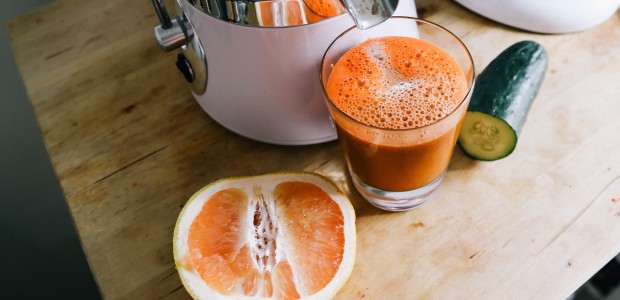Headache is a more common problem and each of us has faced it many times (some more than others). Headaches never occur at an opportune time. They can range from a dull ache which feels like a nuisance to a full-blown migraine that leaves you all but incapacitated.
There are different kinds of headache, but most of the time headache is brought on by stress, sitting too long in front of computer, noise and even other health disturbances. The good news is you can stop a headache before it starts with these simple tips.
See here for more on a healthy work life balance.
Types of Headaches There are 4 main types of headaches:
- Tension headache: Most people describe a tension headache as a constant, dull, ache on both sides of the head, or like a band around the head. Tension headaches usually begin slowly and gradually and often start in the middle of the day.
- Sinus headache: Sinus headaches are described as a deep and constant pain in the cheekbones, forehead, or bridge of the nose. The pain is usually accompanied by other sinus symptoms, such as nasal discharge, stuffy ears, head and nose, and fever.
- Migraine headache: Migraines are painful headaches often accompanied by nausea, vomiting, and sensitivity to light. The pain sometimes preceded by seeing flashing lights or spots.
- Cluster headache: Cluster headaches typically occur at the same frequency at the same times each day for up to 12 weeks, until the “cluster period” is over. Cluster headaches are the most uncommon headache, and more often affect men. The pain is usually located behind or around one eye and is very severe. The eye and nose on the same side as the pain may become red, swollen and runny.
Why We Suffer From Headache?
Actually, the triggering reasons of an headache could be more, as well as the aggravating factors. Surely among the most common, we find:
- Stress
- Bad eating habits (even just skipping a meal!)
- Depression
- Drugs
- Bad posture
- Insomnia
How to prevent it
Avoid foods that trigger migraines. A number of these foods exist, so minimise or avoid them and you may have fewer headaches. Foods associated with migraines includes:
- Smoked or cured meats
- Dairy products, especially cheese
- Foods containing nitrates
- MSG
- Artificial sweeteners
- Canned soups
- Food additives
- Red wine
- Pickles
- Extremely cold foods, like ice cream
Avoid common allergens> The most common allergenic foods include:
- Wheat
- Soy
- Corn
- Peanuts
- Dairy products
- Shellfish
Stay hydrated. Consume foods that are high in magnesium like broccoli, beans, soy milk, nuts, spinach, etc.
Get regular exercise. Regular and routine exercise for around 30 minutes every day has been shown in clinical studies to be very helpful at decreasing headache.
Avoid caffeine, which can trigger headaches. Instead, drink water.
Avoid smoking.
Improve your posture. Improving your posture can make all the difference in the world when it comes to tension-type headaches. Many of us spend our days working in an office or sitting down at a computer with little to no movement, and many of us are guilty of poor posture. Try using an ergonomic chair if you’re sitting down a lot.
Keep a headache diary. It is used by doctors in determining the underlying causes and patterns related to your headache. It helps you track the following:
• Foods you eat and when headaches occur
• Duration of headaches
• Type of pain
• Intensity level
• Location
• Medications
• Amount of sleep
• Strenuous activity
• Elevated stress
Get plenty of sleep. Maintain a regular sleep schedule. If necessary, use an alarm clock to remind you to go to bed. Set and stay with a consistent sleep schedule, even on weekends. If you nap during the day, keep it short. Naps longer than 20 to 30 minutes may interfere with nighttime sleep.
Don’t skip meals. Eating breakfast is especially important. Eat regular meals at least three times each day which include protein, fruits, vegetables and carbohydrates. Try to Include almonds, watercress, parsley, fennel, garlic, cherries, and fresh pineapple in your eating plan.
Cherries: Contains the compound, quercetin, that helps block pain and sensitivity.
Coffee: Helps to constrict blood vessels, to provide headache relief.
Salmon: Full of Omega 3 Fatty Acids, that reduce the severity of headaches.
Whole Grains: Contains Magnesium and Vitamin B, that will help to stop headache pain.
Spinach: Full of Vitamin B2, which relaxes the brain.
Salsa: Helps to ease the pain of sinus headaches, by opening airways.
Corn: Rich in Vitamin B3, which is known to calm nerves and ease the pain of stress-related headaches.
Bananas: Full of Vitamin B6, which will increase the levels of serotonin in the brain and ease your pain.
Watermelon: A water-enriched food, that will alleviate dehydration that can cause headaches.
Flaxseed: Contains Omega 3 Fatty Acids, that help fight migraines.
Apply cold compress to your forehead. Apply a hot or cold compress to your forehead and neck to get instant relief from headache. It’s not necessary to use a medical cold pack either. A bag of peas from the freezer will work just as well.
Apply an apple cider vinegar compress. Apple cider vinegar (ACV) has a long history in realm of natural remedies- Pour ¼ cup of apple cider vinegar into a large bowl, and then fill the bowl halfway with boiling water.
Hot Bath/Hot Shower. Hydrotherapy can be very effective at relieving headaches. If the headache is sinus related, the heat from the bath or shower will work to loosen pressure and facilitate drainage. If the headache is tension related then the heat will help to loosen muscles.
Relax listening to music. Combine your relaxation exercises with your favourite music in the background and you’ll relax even more.
Acupuncture. In acupuncture, thin needles are inserted under the skin to realign the flow of energy, or qi, in the body.
Head massage with Lavender oil – Rosemary oil – Peppermint oil. Head massage with rosemary oil or a pain balm that contains menthol is an effective way to ease migraine pain.
Ginger has anti-inflammatory properties and can be used to treat headaches. Add tea leaves and ginger to 1 cup of boiling water. Stir it well and drain the water. Leave till it cools a bit and drink.
Laughter therapy. Many times, headache becomes fatal due to lots of stress. In this situation, laughter therapy is an effective stress medicine. See some comedy film or read comic book by going in garden and laugh loudly, you will get relief in just a few minutes.
Try aromatherapy seems to have beneficial powers: Orange, lavender, lemon and mint are more recommended.
Staying in tune with your body and understanding the type of headache you are having will help to determine which treatment will be most effective. I hope one or more of these tips work for you.
What tips do you have to prevent headaches?







